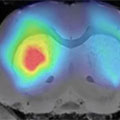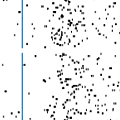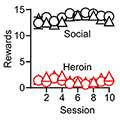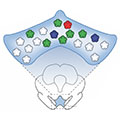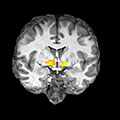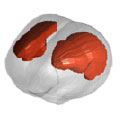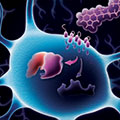Featured Paper of the Month – February 2020
Published in Nature Communications by Bonaventura, Jordi; Eldridge, Mark A G; Hu, Feng; Gomez, Juan L; Sanchez-Soto, Marta; Abramyan, Ara M; Lam, Sherry; Boehm, Matthew A; Ruiz, Christina; Farrell, Mitchell R; Moreno, Andrea; Faress, Islam Mustafa Galal; Andersen, Niels; Lin, John Y; Moaddel, Ruin; Morris, Patrick J; Shi, Lei; Sibley, David R; Mahler, Stephen V; Nabavi, Sadegh; Pomper, Martin G; Bonci, Antonello; Horti, Andrew G; Richmond, Barry J; Michaelides, Michael
Designer Receptors Exclusively Activated by Designer Drugs (DREADDs) are a popular chemogenetic technology for manipulation of neuronal activity in uninstrumented awake animals with potential for human applications as well. The prototypical DREADD agonist clozapine N-oxide (CNO) lacks brain entry and converts to clozapine, making it difficult to apply in basic and translational applications…
